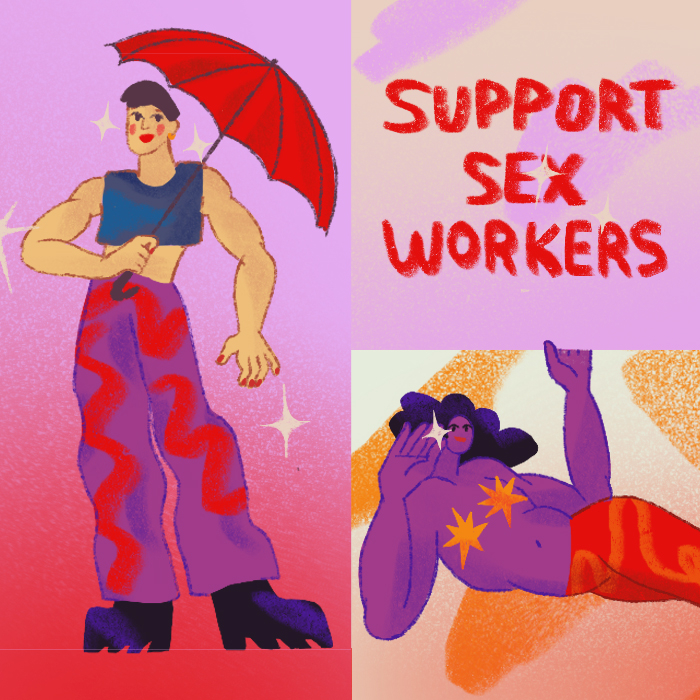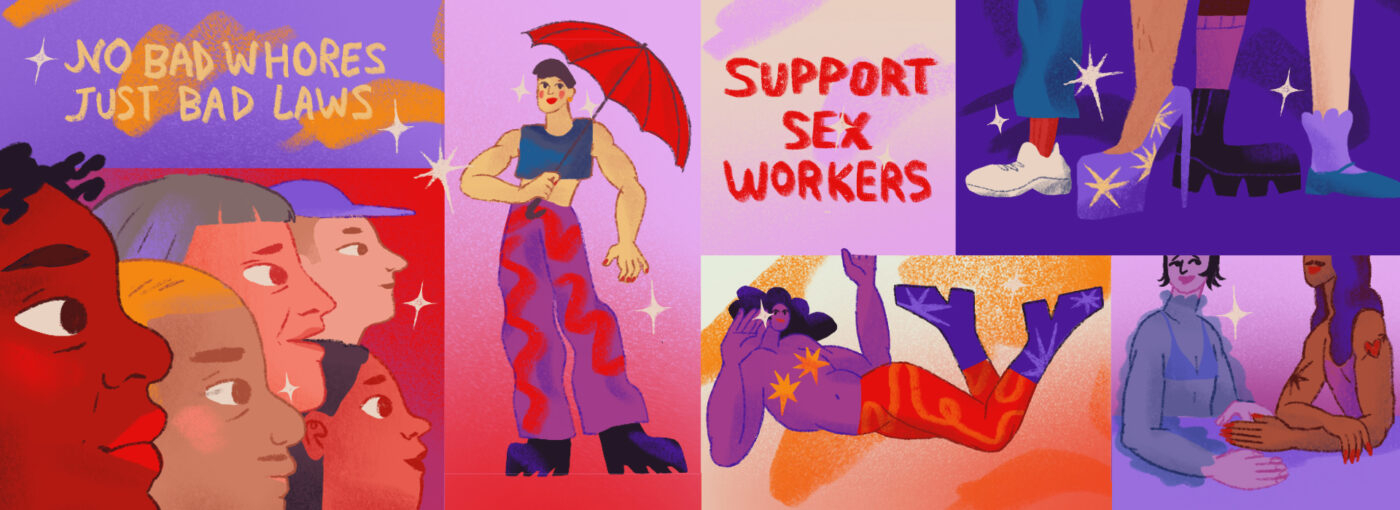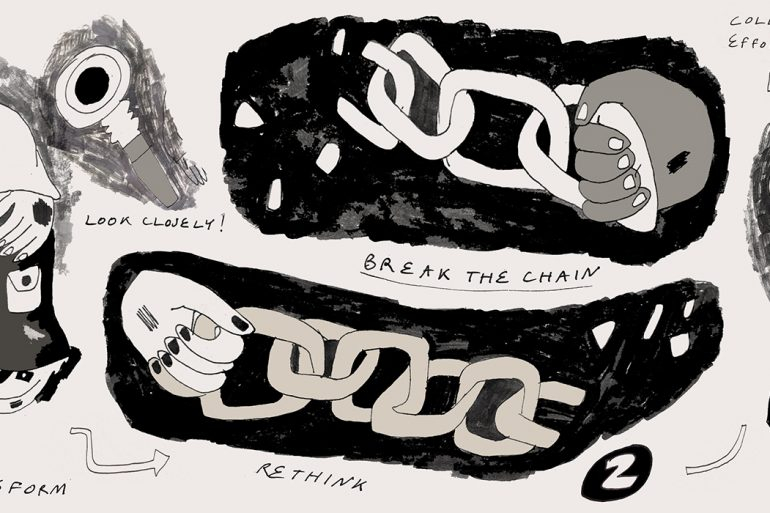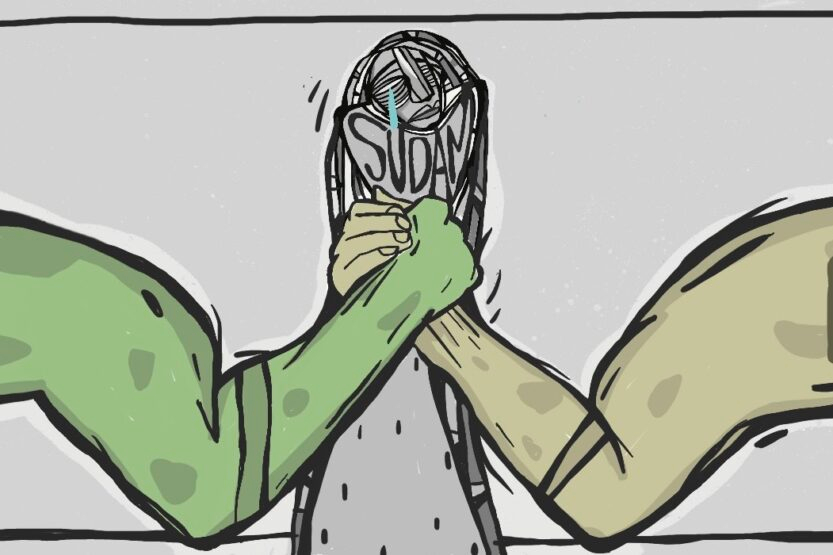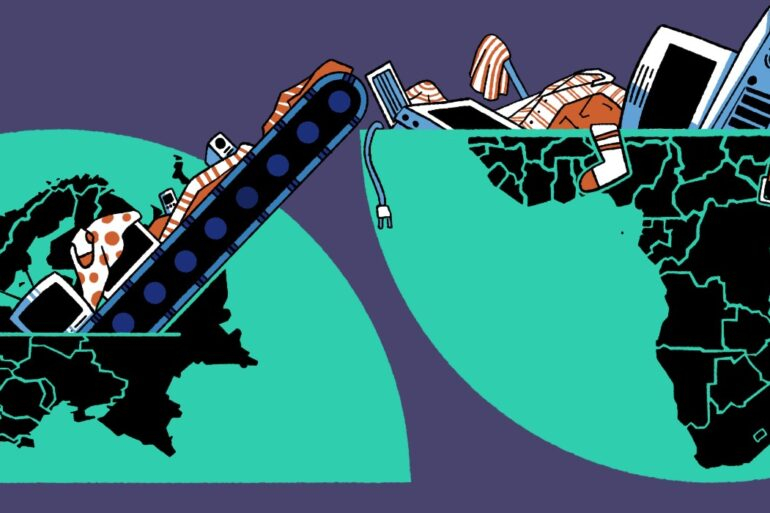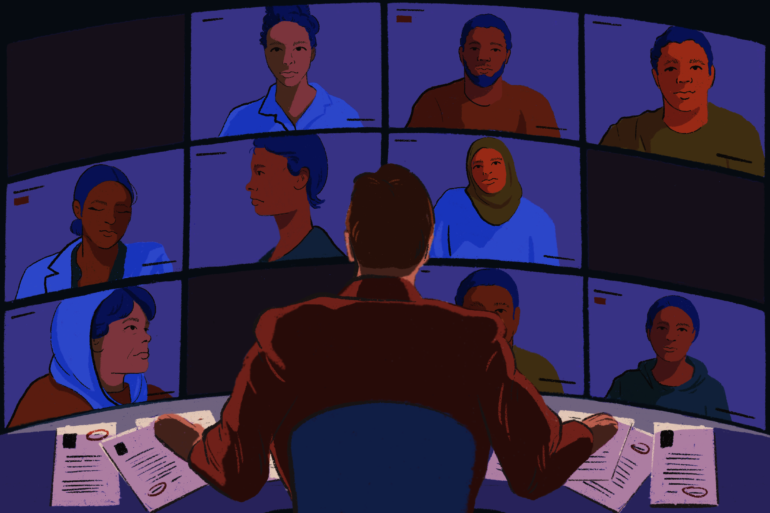What is Decriminalisation?
Full decriminalisation is the removal of sex work as a criminal offence (although violence and trafficking remain illegal).
This includes laws penalising sex workers (SWers), their clients, or laws surrounding the transaction itself.
The movement for decriminalisation acknowledges that “sex work is work”, because it’s a way of earning a living through your own labour. Decrim would allow for SWers’ workplaces to be regulated through employment law, enabling workers to hold their bosses to account and form trade unions.
The push for decrim is about harm reduction, giving SWers access to labour rights, and dismantling the stigma around sex work. Most importantly, it’s a movement led by SWers and it’s what SWers want across the world.
Decrim is globally supported by organisations such as Amnesty International, The World Health Organisation and UNAIDS.
Despite its popularity amongst SWers, only two countries have changed their laws to fully decriminalise sex work. New Zealand was the first country to implement this model in 2003, and it’s shown very positive results for the SWer community there. Belgium changed its laws to decrim in 2022.
What are the principles of decriminalisation?
Decriminalisation is about enabling SWers to:
- Work together for safety
- Access sexual healthcare and regular testing voluntarily
- Unionise and campaign for fair working conditions and safe workplaces.
- Advertise their services on SWer-friendly platforms. And screen clients via shared resources.
- Rent a property without fear of eviction.
- Support and co-habit with their loved ones, without fear of sanctions.
- Have sex work-related offences removed from existing criminal records.
- Gain the right to privacy.
- Enter employment outside of sex work without fear of unfair dismissal on the grounds of having been a SWer.
- Operate free from police harassment and abuse.
- Report assault to authorities free from fear, dismissal or deportation.
- Live in a country that doesn’t define sex work as “violence against women” at an institutional level.
What other legal models exist?
Full Criminalisation
Over half of the world’s territories prohibit the exchange of sexual services for money. This means the transaction itself is criminal, alongside other laws penalising providers, buyers and third parties.
Areas using this model include Russia, many countries across North Africa, The Middle East and the United States. Full criminalisation is often associated with a conservative moral agenda such as religious doctrine or belief that sex work is bad for society.
Partial Criminalisation
This includes countries such as the UK and Brazil, where it’s legal to exchange sex for money in some circumstances if the arrangement is made directly between individuals. However, there are many laws in place that heavily control how sex is sold and force SWers to work alone.
In the UK, the main laws affecting SWers regulate:
- Street solicitation. SWers working on the street are often penalised with fines and a criminal record. This treatment of street-based SWers causes a vicious-cycle where they become trapped “in prostitution” to pay off fines, or because they are unable to seek alternative employment due to their criminal record.
- Brothel-keeping. This is defined in UK law as more than one SWer working from the same place (even though this is a far safer way to work for most SWers).
- Pimping or third-party gain from prostitution. This can include family members who are being supported by a SWer’s income, allowing a SWer friend to rent a room for the day, or, being a SWer’s bodyguard.
The Nordic Model/Neo-abolition
The Nordic model criminalises the buying of sex. It was first introduced in Sweden in 1995 and is described by some as a ‘feminist’ policy, but evidence shows it’s acutely detrimental for SWers. This model has been implemented in countries such as France, Canada and Finland, where it hasn’t successfully shown a decrease in the numbers of SWers, or improved conditions for workers.
In fact, research from France has shown that the Nordic model has increased the amount of violence experienced by SWers, pushed them further into poverty and decreased their ability to insist on using condoms. SWers in these countries continue to be harassed or penalised by the police.
Legalisation
Decriminalisation is often confused with legalisation, but the key difference is SWers’ self-determination.
In countries such as The Netherlands, sex work is legal but heavily regulated by the state. In Germany, for example, “prostitution” is policed in zones and SWers are forced to sign up to a register.
Decrim calls for SWers to be able to determine how and where they work, not the state. It demands that laws surrounding (largely women and queer) people’s bodies be taken out of government control and put into the hands of the workers themselves.
Why is decriminalisation central to the feminist movement?
SWERFs, or “Sex worker exclusionary radical feminists,” strongly oppose the decrim model and call for all sex work to be criminalised. This intersectional conflict has been going on since the 1970s. Second Wave feminists, such as Andrea Dworkin, excluded SWers from mainstream feminism on the grounds that choosing to “self-objectify” negated gender equality and promoted rape culture. In response to this, organisations such as COYOTE (call off your old tired ethics) fought back. Seeing women’s rights and SWer rights as one and the same.
There have been many SWer/feminist leaders over time such as Carol Leigh (r.i.p.) who coined the term “sex work”, Annie Sprinkle and more Recently SX Noir … all of whom support the full decrim model. But decrim is less about individual leaders, and more about amplifying SWer’s voices universally.
In short, decriminalisation is central to feminism because sex work is a gendered issue. There are SWers of all genders but the majority are women and the clientele is overwhelmingly male. And most crucially the central demands of the feminist movement, including an end to patriarchy, violence against women and inequality, can only be achieved when they are achieved for all women in all workplaces.
This is why sex workers’ rights should be seen as women’s rights.
What are the arguments against decriminalisation?
Aside from those who inherently believe that all sex work is violence against women, the main arguments against decriminalisation include fears it will promote sex trafficking, child abuse and sustained drug abuse.
The decrim movement is passionate about combating all forms of trafficking, exploitation and abuse. However, the criminalisation of sex work (whether of SWers or clients) does not solve these issues, but actually makes them worse by pushing them underground and taking power away from it’s workers.
The association of sex work with trafficking is one of the main reasons why gaining public support has been so hard for SWer organisations. To bust the stigma around sex work, we need people to understand that many people can and do choose to enter sex work as it’s the best in a limited range of options. The main driver of sex work is not ‘male demand for sex’, but SWers needing money to live.
Sex and gender theorists such as Gayle Rubin argue that defining sex work as “inherently violent” has created a “moral panic.” To focus solely on trafficking is an oversight; it refuses to acknowledge those who enter the industry through choice, and has given fuel to harmful legislation. The FOSTA/SESTA law in the US and the Online Safety Bill in the UK were both created to prevent trafficking or exploitation online.
In reality, these restrictions curtail the ability for SWers to advertise online, which forces SWers into street solicitation where it’s less safe.
Which groups are most impacted by the criminalisation of sex work?
Sex trafficking is closely related to immigration, and often these ill-informed attempts to prevent it are thinly veiled anti-immigration policies. In the UK, police often go on brothel raids claiming to be looking for ‘victims of sex trafficking’, but usually all they find are migrant SWers, who are sometimes then deported. Really it’s any SWer living in poverty who is affected by criminalisation. Brothel raids sometimes result in having earnings seized and/or eviction.
Street sex workers are in the most vulnerable situation, they are most visible to the police and often make less income compared with indoor workers. Criminalisation forces them into dangerous more isolated areas. Where clients don’t want to get caught in the act, negotiation time is cut short. Where business is slow, riskier acts are sold to clients who might be presenting aggressive behaviour. Or, are known to be harmful.
Why is this a global issue?
Sex work and migration are inherently linked. It can be one of the few options available for individuals supporting themselves and their families without a work visa or access to state benefits. There are even instances of people attempting border-crossing with people smugglers in the knowledge that they will be forced into prostitution when they arrive. Impossible decisions like this are being made because of unbearable situations in people’s countries of origin. For migrant SWers, reporting assault to the police could result in deportation, and so they cannot fight against violence or exploitative work conditions.
SWers’ rights activism isn’t a Western phenomenon – There are SWer activist organisations around the world, such as Empower in Thailand, SWEAT in South Africa, and the All India Network of Sex Workers. SWers exist in every culture in many varied forms and they share the same demand: full decriminalisation.
The more countries which change their laws in favour of full decrim and reject the Nordic model, the closer all SWers come to attaining that goal.
Why does decriminalisation need solidarity from workers’ movements around the world?
Put simply: Sex workers’ rights are women’s rights. They are LGBTQI+ rights. And they are workers’ rights.
In a world where abortion laws are being rescinded, trans women are having their rights and dignity stripped away, and young girls are once again being excluded from education, we can’t take for granted that our societies are becoming more liberal or will stay so.
People might not want to be associated with SWers but they’re an indisputable component of all societies. One that holds a stark mirror up to just how ableist, racist and prejudiced a society’s values can be. Curtailing what SWers do with their bodies is the thin end of the wedge for bodily autonomy everywhere.
What can you do?
The most important thing anyone can do is keep this discussion going. Talking about SWer rights with friends and families is the only way to bust through the stigma. You can also show your support by donating to sex worker-led campaigns, such as the Hookers against Hardship mutual aid fund for SWers.
Books to Read:
Two essential books on SWer rights are:
- Revolting Prostitutes, by Juno Mac and Molly Smith
- Playing the Whore by Melissa Gira Grant.
Organisations to follow:
- SWARM – Sex worker advocacy and resistance movement (UK),
- ECP– English collection of Prostitutes,
- UVW united voices of the world (union UK):
- SCOT-PEP – A Scottish charity to protect SWers.
- GAATW – The Global alliance against traffick of women.
- NUM – National Ugly Mugs
(all of whom are on social media)
Articles:
- It’s Complicated: Dating as a Sex Worker – Shado Magazine
- How the cost-of-living crisis is affecting my income as a full-service sex worker
- The ‘Whore-archy’ and Me: Ellie Next Door and her experience of sex work and the pandemic – Shado Magazine
- Understanding consent through sex work as a rape survivor – Shado Magazine
Links to find out more:
Check out the Decrim-Now website for all information about Decriminalisation and current campaigns.
- SWARM all about The Swedish model
- TedTalk – “What do Sex Workers want” by Juno Mac.
- NSWP – Global network of sex work projects (Here SWer organisations are organised by region)
- Medecins du Monde – What do Sex Workers think about the prostitution act? – How the Nordic Model has affected SWers in France.
